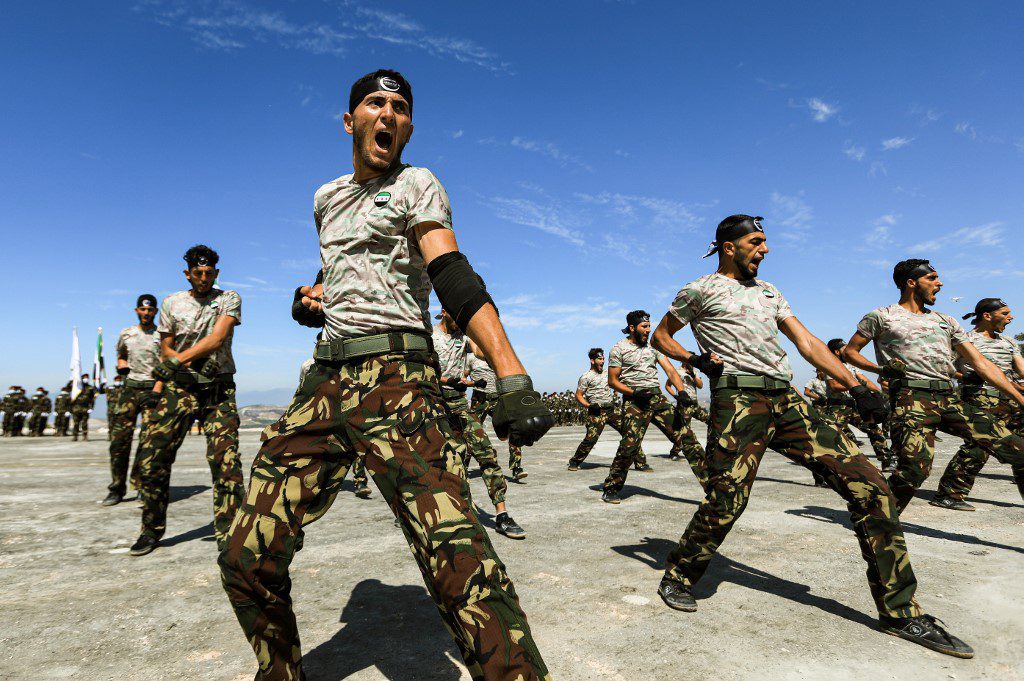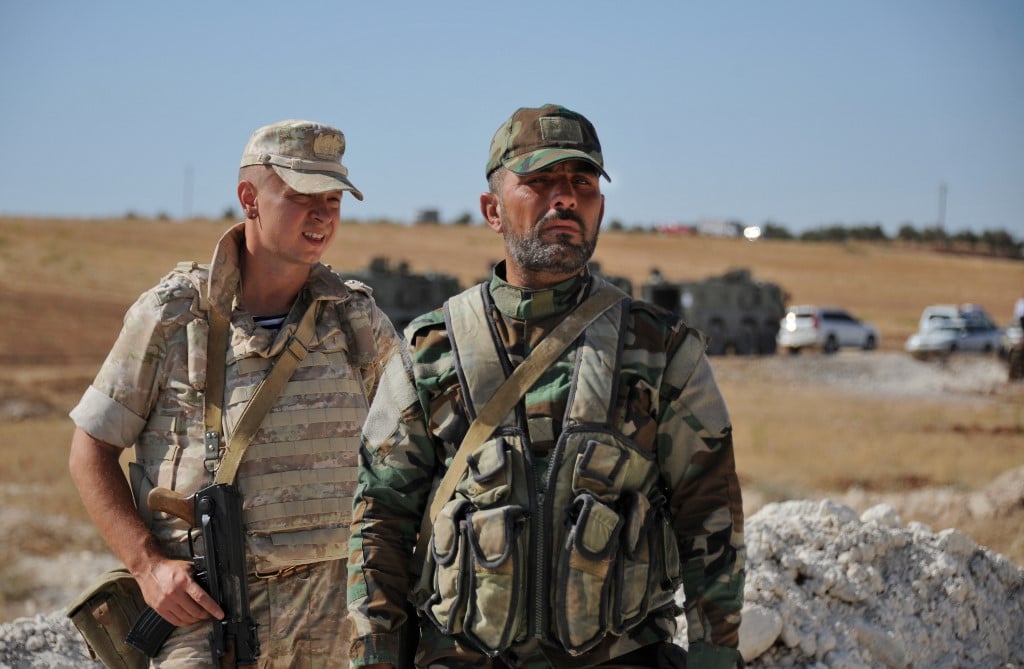
By: Mat Nashed
Turkey and Russia are recruiting mercenaries from both sides of Syria’s frozen conflict to advance their respective foreign policy agendas.
These fighters have generally grown up without acquiring basic education due to the nine-year civil war that destroyed their homeland. Now Syria is suffering from an acute financial crisis that has been exacerbated with the collapse of the Lebanese economy. Young Syrian men are thus trying to support their families by monetizing the only skill they obtained from the war: fighting in battle. As a result, Syrian mercenaries are changing the complexion of conflicts in the Middle East and beyond.
For Turkey and Russia, deploying Syrian fighters is a low-risk endeavour. The strategy prevents both countries from sending their own troops to faraway lands, enabling Ankara and Moscow to evade domestic pressure if the war goes awry. The callous calculation illustrates that both Turkey and Russia — two of the most active imperial powers in the Middle East today – have zero regard for Syrian lives.
No wonder, then, that Libya was the first testing ground to deploy Syrian mercenaries. Since 2019, Libya has developed into an all-out proxy war, where foreign powers either exploit or ignore local fractures to safeguard their resource interests.
In the first three months of 2020, Ankara deployed between 3,500 and 3,800 paid Syrian mercenaries, according to the Pentagon. Fighters were recruited from the Syrian National Army (SNA), a proxy force that Turkey created in 2016. The SNA was previously used to route the Islamic State (IS) from Turkey’s southern border, as well as attack the Kurdish statelet in northern and northeastern Syria. But in January 2020, they were deployed to safeguard the Tripoli government in Libya with the promise of receiving $2,000 a month. In reality, half their salaries were squandered off by greedy commanders who control the payroll.
The money was worth the risk for many Syrians. Turkey even sweetened the deal in case a fighter was killed. According to news reports, families were promised $100,000 in compensation.
For Syrians, their lone desire to drag their families out of abject poverty was exploited by Turkey. At the time, Ankara desperately needed to stop the fall of Tripoli to protect its maritime ambitions. After all, the Tripoli government and Turkey had recently inked a Memorandum of Understanding to demarcate maritime boundaries for gas exploration in the crowded Mediterranean. The move infuriated Turkey’s neighbours since it cut through contested maritime boundaries they claimed for themselves.
Meanwhile, forces loyal to Libya’s eastern commander Khalifa Haftar were on the cusp of seizing the capital. Haftar was aided with mercenaries from the private Russian security company Wagner Group, as well as Chadian and Sudanese fighters. In May 2020, reports surfaced that Haftar was also relying on Syrian mercenaries.

Reuters reported that a private military contractor from the Wagner Group was working under the supervision of the Russian army to recruit Syrians from pro-Bashar Al-Assad militias. Elizabeth Tsurkov, an Israeli specialist on Syrian mercenaries, noted that these forces include the 5th Corps, Division 25 (formerly known as Tiger Forces), the Quds Brigade, and a force called the IS Hunters. Members from the Syrian National Defense force were also recruited into the Wagner Group and deployed to fight for Haftar.
But while pro-Assad fighters had won the war back home, they realized they were fighting a losing battle in Libya. By June 2020, the use of Turkish drones and Syrian mercenaries reversed Haftar’s gains and rescued the Tripoli based government.
Turkey’s success in Libya encouraged President Recep Tayyip Erdogan to use drones and Syrian mercenaries to secure political leverage in other protracted conflicts. The latest example, of course, is the ongoing bout between Azerbaijan and Armenia over the disputed region of Nagorno-Karabakh.
In early October 2020, sources within the SNA said that some 1,500 Syrians have been recruited to fight in the mountainous region on the side of Azerbaijan, a traditional ally of Turkey. The fighters said that they were trained in the southern Turkish city of Gaziantep. They were then taken to Ankara, before departing to Azerbaijan.
Asia Times reported that the mercenaries and their families were given a gag order, keeping most of them from going on the record. Some families were reportedly told that they would lose financial compensation if they spoke to the press.
Yet despite the promise of a $1,500 salary, paid in Turkish lira, many Syrians are regretting that they signed up to fight. The bloody conflict has already killed more than 55 Syrian mercenaries, most of whom were told that they would be guarding oil facilities and not be sent to the frontlines. Syrians were under this assumption since they were being recruited by Turkish-front companies, which have oil and gas contracts in Azerbaijan. But as more Syrians died, recruiters began telling Syrians that the frontlines in Nagorno-Karabakh have ‘stabilized’ and that the war is less deadly than it was a few weeks ago.
Syrian commanders have tried to justify the presence of their fighters in Libya and the Caucasus, arguing that the SNA has an obligation to combat Russian hegemony across the globe. That was the defense of Capt. Abdul Salam Abdul Razzaq, who lives in the countryside of the Syrian enclave of Idlib. He told Al-Monitor that Syrian mercenaries are forcing Russia to direct its interests elsewhere, thus keeping it from committing more crimes in Syria.
Succumbing to this reasoning is a coping mechanism for many Syrians. After years of fighting in a war that drew in foreign powers – all of whom interfered to secure their interests rather than protect Syrian lives – many former revolutionaries and rebels are searching for any logic to justify fighting in faraway lands.
The bitter truth is that Syrians are pawns in the larger geo-political struggle between Russia and Turkey.


